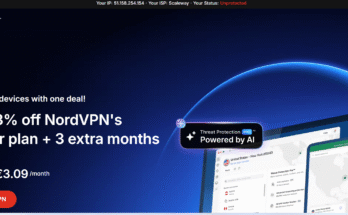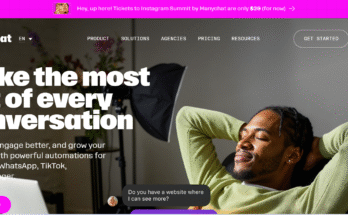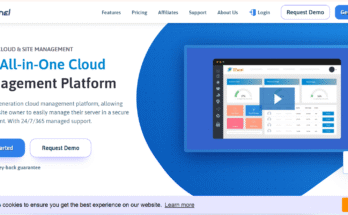In today’s business landscape, online marketing has become an indispensable tool for businesses to connect with their markets, promote sales, and develop brand loyalty. Through digital platforms, businesses can connect with customers across the world, on their time, and in a variety of different ways. Despite the advantages, online marketing comes with its own unique challenges. Understanding the importance of online marketing, the challenges it encounters, and the different types of online marketing will help you develop an effective online marketing approach.
Importance of Online Marketing
Global Reach: Online marketing opens doors for businesses to reach potential customers beyond the brick-and-mortar realm. With internet access, businesses can now reach customers in various geographical areas and time zones increasing the size of their potential customer base and as a result their sources for growth.
Costs: More traditional forms of advertising, such as television, radio, and print advertising, are expensive to implement, especially for small businesses. Online marketing, through social media, search engine optimization (SEO), and email campaigns tend to cost substantially less while providing a better return on investment (ROI).
Targeted Advertising: Digital platforms allow businesses to deliver very targeted forms of advertising to demographics, interests, and behaviors. Those types of targeting help businesses implement a more efficient marketing approach. Instead of spamming advertising to everyone, companies get the benefit of marketing to the specific profile of individuals who are most likely to engage with a brand and possibly convert.
Measurable Results: One of the major benefits of online marketing is the ability for businesses to observe how effective marketing is, almost immediately. With tools that monitor and analyze data, businesses can see what is generating website traffic, conversions, click rates, and engagement rates that deeply inform them of responses from their audience allowing them to refine their marketing approach to maximize effectiveness.
24/7 Marketing: Unlike the brick-and-mortar model, online marketing never closes. Businesses can reach their audience, any day, any time providing more visibility and opportunities for engagement with their market.
Better customer relationships: Engaging your customer through social media and other interactive marketing platform allows businesses to connect with their consumers directly. Providing opportunities for them to engage with the brand while also helping consumers when they have questions. There are more opportunities to develop loyalty by providing a better customer experience.
Drawbacks of Online Marketing
High Competition: There are millions of websites, blogs, videos, and social media posts vying for internet users’ attention. Due to this already high saturation of online content, visibility and traffic are difficult to come by. Therefore, smaller businesses often get drowned out by those already established entities with bottomless advertising budgets and aggressive online marketing tactics.
Dynamic Medium: The digital marketplace is significantly dynamic as numerous new tools, technologies, and platforms continue to emerge. Therefore, organizations must be vigilant in keeping abreast of digital trends and readily adapt to changes, which can be exhausting and expensive for organizations.
Concerns about Privacy and Data Protection: Internet marketing strategies depend on collecting user data to personalize content and target the right market segments. However, stringent data privacy laws such as those in Europe (GDPR) have raised awareness among consumers, making businesses more cautious of how they capture and treat customer data. Any infringements of these laws can result in substantial fines and damage to a company’s reputation.
Algorithm Changes: Search engines such as Google and social media platforms modify their search algorithms regularly. Such changes can directly jeopardize an organization’s ad campaigns or automatically push the business’ listing to the bottom of the results list. This would involve hiring digital marketers to consistently re-do their digital marketing strategy to address new perimeters set by these platforms.
Technical Hazards: In some locations, access to high-speed internet is spotty, and in such instances, internet marketing is less likely to be effective. Additionally, several businesses simply do not have the time, resources, or technical know-how to limit the potential of internet marketing.
Destructive Public Feedback: Internet comments and feedback are open to the public, which means negative backlash against a brand is easy when an online marketing approach fails. Not addressing complaints properly or failing to placate an upset customer can do a great deal of harm to a property or center’s good name.
Forms of Internet Advertising
Search Engine Optimization (SEO): SEO is the process of getting a web site’s content and architecture to rank high on search engine results pages (SERPS). The better a web site performs, the more organic traffic it receives. SEO requires keyword analysis, the generation of high quality content on the site, and the analysis of technical changes on the back end of the web site.
Search Engine Marketing (SEM): SEM is a strategy that focuses on getting your company’s web site promoted on a search engine such as Google through a fee based service known as pay-per-click (PPC). Advertisers identify key words and phrases that are associated with their business or organization, and place a bid on that key term would result in their advertisement appearing at the top of the search engine results when a user types in that search phrase.
Social Media Marketing (SMM): SMM is a process of marketing products or services directly on social media platforms like Facebook, Instagram, Twitter, LinkedIn, or TikTok. This gives companies an opportunity to engage directly with their social audience, develop brand awareness, and capture traffic from users to their web sites.
Content Marketing: This internet advertising represents a specific type in which the focus is on providing useful, relevant content to attract a particular audience and attract their attention and promote engagement. Blog posts, infographics, video, and podcasting are some examples of the services types which are designed to provide useful information to help build trust and establish your brand in its industry.
Email marketing: Email marketing is the process of sharing specific messages to targeted audiences who are subscribed to a business or company. Email marketing lead generation has become valuable for relationship nurturing and promoting products and services directly to a user’s email inbox, updates, and/or special reasons.
Affiliate Marketing: Affiliate marketing is an individualized or group performance marketing strategy where an advertiser rewards an affiliate (partner/influencer) for their success with driving web site traffic or sales through successful located ads. The affiliate is typically rewarded on a lead based on commission for each sale or new involvement that is successfully generated.
Influencer Marketing: Influencer marketing harnesses the power of people that have large social media followings and who can promote your brand’s products or services. Utilizing these influencers, businesses can reach a wider audience and may receive credibility and seal of approval from an influencer.
Pay-Per-Click Advertising (PPC): PPC allows advertisers to pay for each click on their ad. This model is predominantly used in search engines (Google Ads) or social media websites (Facebook Ads) but instantly gives advertisers visibility to the audience they are targeting.
Conclusion
In today’s digital age, online marketing is an integral part of the overall success of any business. Although online marketing provides a business with global reach, less expensive, and measurable results it does but present challenges in terms of competition, data protection, and algorithm upgrades. Nonetheless, online marketing includes developing an holistic overview of online marketing tactics from SEO to influencer marketing, and ultimately, agencies or businesses seeking to refine their strategies to align with the needs of their audience, and develop their goals ultimately depends on the understanding these two modified approaches. As digital trends change businesses must embrace the evolving, and remaining constant is critical to achieving success with online marketing.





Thank you for your sharing. I am worried that I lack creative ideas. It is your article that makes me full of hope. Thank you. But, I have a question, can you help me?
Your point of view caught my eye and was very interesting. Thanks. I have a question for you.
Can you be more specific about the content of your article? After reading it, I still have some doubts. Hope you can help me. https://accounts.binance.com/register?ref=P9L9FQKY
Your article helped me a lot, is there any more related content? Thanks!
Your article helped me a lot, is there any more related content? Thanks!
Your article helped me a lot, is there any more related content? Thanks! Открыть счет на binance
Thanks for sharing. I read many of your blog posts, cool, your blog is very good. 创建免费账户
Your point of view caught my eye and was very interesting. Thanks. I have a question for you.
Your point of view caught my eye and was very interesting. Thanks. I have a question for you.
I don’t think the title of your article matches the content lol. Just kidding, mainly because I had some doubts after reading the article.
Buy an SMTP server for unlimited sending with guaranteed inbox delivery and high deliverability rates. We offer different types of SMTP servers to suit any of your sending needs. Our services include multiple server setup options with various pricing and configurations.
Can you be more specific about the content of your article? After reading it, I still have some doubts. Hope you can help me.